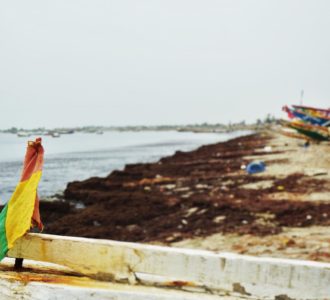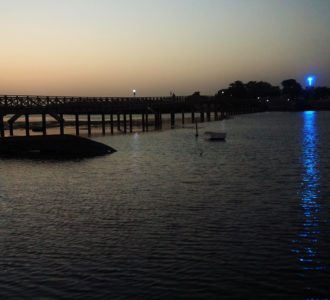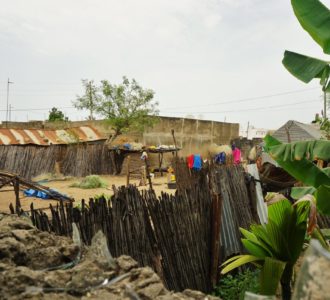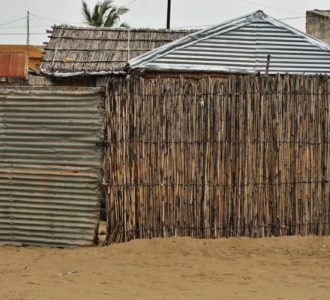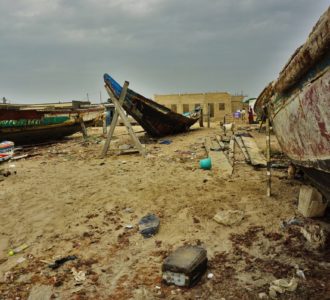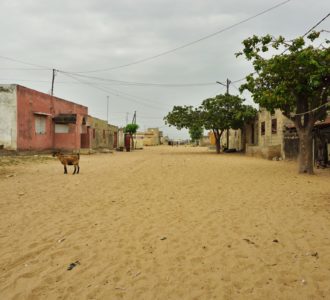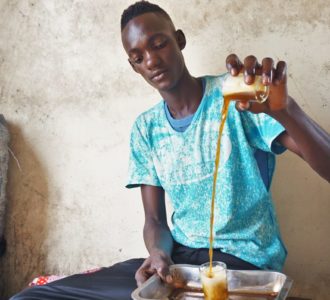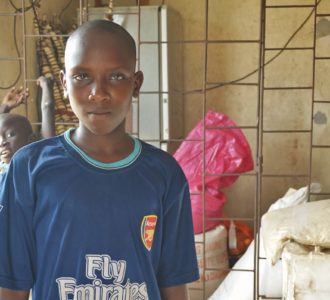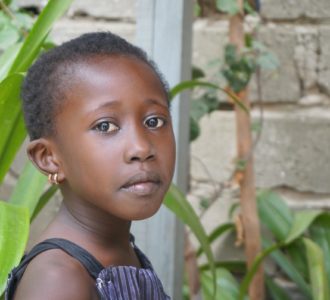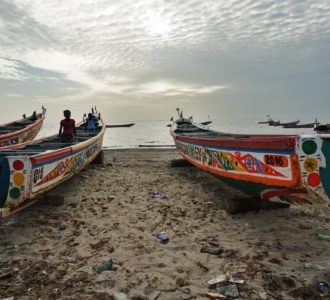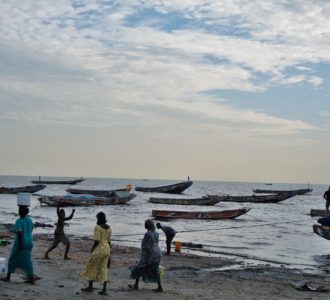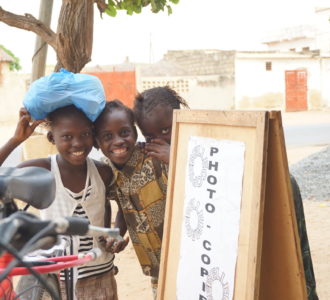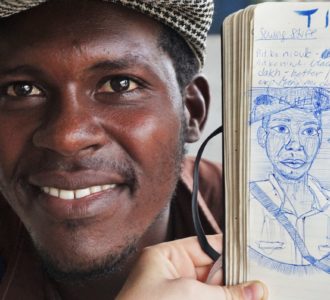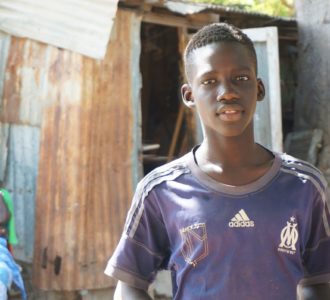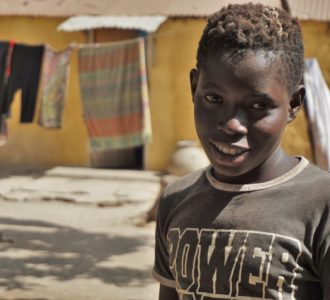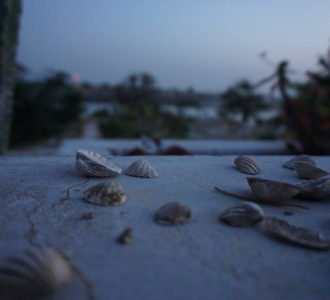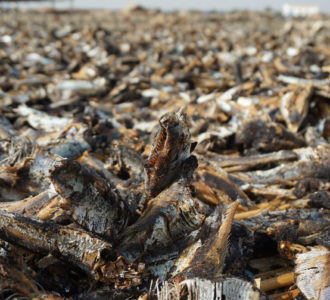A disclaimer. More
like an excuse.
This blog post has
been long overdue. To my friends and family who have missed my incoherent
writing, I apologize. This life in Senegal has been like a piece of coal,
imperfect. And of course, the typical excuses: Work, precious internet
connection, demotivation, fatigue, Malaria, relationships, blogger’s
block. One silly, but significant reason was that I couldn’t spell anyone’s
names and I wasn’t about to leave permanent internet evidence of my ignorance
of my family’s names. Also, it was uncomfortable taking out my camera. I did
not want to be perceived as a tourist by my community. But lookie, photos!
Their presence on this blog speaks volumes to how much I have integrated into
my neighborhood. But on the same topic, I have been acutely terrified of painting
my life here in the context of a foreigner living in an African country. Many
are familiar with Africa stereotypes – The starving, stomach bulging children, the
perpetually cheerful dancers, straw and mud huts, squalor and overpopulation in
classrooms and urban centers. Each time I begin to describe something, and evitable
inch closer towards one such cliché, I surrender and refuse to write on. I fear
that I am exactly the media I condemn, providing the imagery of poor, primitive
Africa, and worst of all, having the personal experience to support its
validity. Put it simply, I fail to do justice to the Senegalese experience. Describing
this place and my life here is a nuanced process, as every word or sentence I add
begs for elaboration and further description. Kudos to those who never shy from
reporting the truth from their eyes and not challenging the difficulties and
complexities of helping others understand and empathize.
This blog was written from
both New York University Abu Dhabi and Chez Tambédou, Joal-Fadiout. I schizophrenically
wrote whilst wrapped in the suffocating (relative) luxury of white mosquito
nets and even whiter dorm sheets and towels. My short respite at NYUAD helped
me distinguish the identities of Jasen Lo and Samba Tambédou. You see, I have
found it difficult to write about my Senegalese life in Senegal as Jasen Lo. I
struggle with the tenses and pronouns, and I struggle even more to type since Mohammed
(my little 4 year old brother) is determined to PRESS ALL THE BUTTONS on this
stranger’s device. The problem being, once my laptop is opened and my internet
key plugged in, Mohammed (and Samba too) fails to recognize Samba anymore, but
instead he is solely enraptured by the colorful screen, the world Jasen Lo
clings onto. Having the chance to stop living as Samba for a while and be Jasen
again, was crucial in my ability to properly blog about Samba as Jasen. Geez,
talk about quarter life crisis huh. Here goes. Home.
As I walked into my new home in
Joal-Fadiout, I loudly proclaimed myself as Samba before anyone could protest. I
wasn’t about to be named some name that didn’t fit me again. (Ibrahima…) Traversing
dirt roads and highways, I considered my new name during the bus ride from
Dakar. Samba fit me. It reminded me of Singapore, of my mother and her Sambal chili,
a spicy shrimp based condiment from Southeast Asia. Samba wasn’t associated to
any religious figure in the Quran or the Bible. You must understand, I can’t
help but compare myself to angels, prophets and other magnificently bearded
holy entities, and be crushed by the amount of heavenly holiness I will never
amount to in my blasphemous lifetime. So before my new host family could
introduce themselves, or subject me to failing a name’s religious legacy, Samba
became a new member of the Tambédou household. Paap Ibrahim’s (My host father.
Ironic huh) eyes betrayed glints of disappointment. He must have wanted to name
me. Sometimes I wonder if he planned to name my Issac or its Islamic equivalent.
That would be poetic.
I inquired what my surname was, and
after hearing my beautifully melodic surname, slowly articulated my self-given
and but also the generously granted full name.
Man,
Samba Tambédou la
(Unrelated – I find the indicative suffix la in Wolof, very similar to how la is used in Singlish in an almost
identical capacity. Eh damn cool la)
However,
before any more introductions could commence, Ndeye Gnilane (My 7 year old host
sister. I didn’t know her name at that point.), burst out in hysterical
laughter. To be fair, I’m sure it was amusing to her, that a Chinese person was
claiming to be her new brother and that her parents were ardently sponsoring
said Chinese person’s claim. Turns out though, Gnilane knew a Samba from a text
in her French textbook. In this text, Samba dreams about his bicycle. However,
Samba doesn’t actually own a bicycle. He wakes up from his dream in a panicked
state, frantically asking where his bicycle is. His friends and family laugh at
him because Samba was only dreaming, the silly boy he is. My sister thought
that I was like Samba without a bicycle, the silly boy I am. Standing under the
doorframe of his new home, Samba felt teased and an unfamiliar warm, yet
embarrassed sensation, not knowing exactly why.
Three days later, my father and I
went to Mbour (closest major city), to buy a bicycle as I came to understand
the transport system in Joal and after I calculated the worthiness of such an
investment. Returning from Mbour, my father on his motorbike and I on my new
bicycle, pulled over in front of our house, where the neighborhood kids,
including my siblings, were playing. The children gathered around us, shouting
my name and examining my bright red purchase. I pushed my bike up the ramp into
the house deliberately, singling out and glaring at jaw-hanging Gnilane. Once
my father, our rides and I were safely inside, I closed the door on the
attention hawking children, but not before looking Gnilane straight in the eye
and dropping the title of her pathetic French text on her: “Samba et son velo.”
It’s
really the little victories that count right? Like writing this blog post,
which has so far eluded my mental fortitude and has somehow amounted into a momentous
task. But I do remember promising a description of Joal and Samba’s lifestyle
here in Senegal. So allow me to provide some visual context of my immediate
environment. Instead of giving you a guidebook definition of what Joal has to
offer, here is a description of Joal I wrote to a friend a few days after my
arrival:
“Joal
is not spectacular. Not pretty or quaint at all. But it is beautiful. Just not
in the traditional sense. What you'll see here in Joal is beauty in how people
survive. Perched on the algae reeking rubbish polluted beaches, are these
elaborately decorated fishing boats bearing Senegalese namesakes and sayings: Touba, Santi Yalla, Teranga. You can see the fishermen at work during the
day and the miles of beaches are colored with these vessels. There is a bridge
linking the seashell island town of Fadiout to mainland Joal, and in the afternoon
sunset, the yellowness of everything, the sky and the water and the sand,
creates such a sight, even with the begging children and the rubble and the
dingy poorly constructed shacks. Men and women dress in the most elaborate
outfits, bearing lively headscarves and dresses, or two-piece Boubou suits; but trudge about dirt
roads and puddles. Like much of Senegal, Joal is still a work in progress. And it’s
not exactly a tourist destination, even if the internet claims it is. Tourist
sights often get by on their spectacular visuals or rich history. Joal has
neither. But you'll find nonchalant fortitude everywhere: in the eyes of the
street children and grumpy klando
(taxi) drivers, or the aforementioned boats, or how people here are not at all
fazed by the hordes of flies, or simply the dirty sandy reality of economic
development. That’s not what tourists want to see. Writing this I realize it isn’t
what I wanted to see either, but I believe it’s something everyone needs to see
for their own eyes. It’s one thing to talk of fighting for social justice and
empowering developing economies, it’s another to live in those exact
communities where such progress is most direly needed. In truth, so much
Senegalese culture exists within a household or tucked in the intricacies of a
greeting. You won't be impressed as a tourist, but as an explorer of cultural
nuances, most likely so.”
Dated
24th September 2016
Now you know why I struggled to write about this place. The
description above is not a flattering appraisal. In fact, the paragraph
contains many inaccuracies and incorrect exclamations. But that lies beside the
point I was making before about strengthening confirmation bias about the “Dark
Continent”. While I did make some valid points about the state of economic
development, this image of Joal I crafted was severely limited to my one week
old, uninvestigated and unfounded observations. I must stress here that what I write
on this blog is not in absolution, what Senegal and Joal are and are not, but
simply the events and insights that I happened to chance upon. In fact, Joal
does have a rich cultural and historical significance, it’s the native home of
the revered first head of state of Senegal, Leopold Senghor. Rainy season has
passed, and most puddles that plagued my early travels on foot have all but
disappeared. Not all klando drivers
are grumpy, not all the children beg on the streets and not all the houses are
poorly constructed shacks. Drivers’ faces light with animation at the chance to
speak with somebody who is not an old lady with a bucket of dying fish. I teach
children who only beg for the chance to write on the chalkboard. My neighbors
live in cool and ventilated straw huts while I sweat under my metal roof, surrounded
by my concrete walls. You can imagine that it’s infinitely frustrating for me
to accurately but concisely convey life here with such a narrow lens and such a
shallow field of depth, the lens being my limitations as a writer and that of word
limits while the depth being my stupidity and ignorance. Forgive the photography
analogy, but I wish I had a wide angle lens. I want to show and explain
everything, but I can’t. I’m struggling with this inability, and progress has
been slow. But this blog post is progress enough.
Anyways, aside from including my personal struggles (Just me
doing me), an incomplete description of my town, and a stupid story about my
name, my sister and my lack of chill, here is a brief description of my daily
activities.
Wake up, think of running,
snooze.
Zombie out of room.
Bucket shower, suddenly awake.
Prepares breakfast, chased out of
kitchen, forgot about gender roles.
Scurries to salon, waits with
siblings, watch weird French cartoons and TV shopping.
Eats breakfast, tries to steal
sibling’s powdered milk sachets, caught.
Rides bike to school, stop 20
times to greet neighbors and acquaintances
Shouted at by passersby’s:”Toubab
(foreigner)! Chinois (self-explanatory)!”
Arrives at school late, greet
teachers, students and supervisors.
Walks into class ashamed, blame siblings
for “stealing my breakfast”, teaches English.
Tries to explain the 3rd
conditional tense, fail miserably.
Noon, goes home for lunch.
Play with siblings while waiting,
kicks football into Mohammed’s face, comforts crying toddler.
Lunch, full, told to eat more,
refuse, anti-Malarial.
Nap.
Bikes to carpenter’s workshop.
Shouted at again, if I’m lucky,
maybe “Samba!”
Arrives late, but before my boss
because productivity is thought of differently. (PEOPLE AREN’T LAZY THOUGH)
Carry planks around, sand doors,
hold pieces of wood while boss saws, hammer nails.
Do nothing for some time, wait
for boss to return from mosque, mess around with other apprentices.
Pack materials and tools. Get off
work. Bikes home. Not shouted at because of darkness.
Exhausted, fall asleep.
Mom wakes me for dinner, angry I left
light on, guilty.
Dinner, full, told to eat more, refuse,
pretend to be distracted by Mexican soap opera.
Bucket shower, suddenly sawdust
free.
Tries to write blog, doesn’t know
how to write about Africa appropriately, gives up.
Sleeps, bitten, forgot mosquito
net, places it, sleeps.
This is the typical day of Samba Tambédou. He’s happy here at home. He's been at it
for 3 months now. Of course, I glossed over special events, relationships I
have formed and special individuals. But those blog posts will come in due
time, for now, I rest in the knowledge that I wrote about how difficult it was
to write this, and it is somewhat coherent. I hope. More to come.
TLDR – Jasen finds it hard to write due to “Africa”. But he
does. The story of his name and the reason his sister hates him. A description
of Joal to prove Jasen’s point and a rundown of his daily schedule. He promises to write more.
